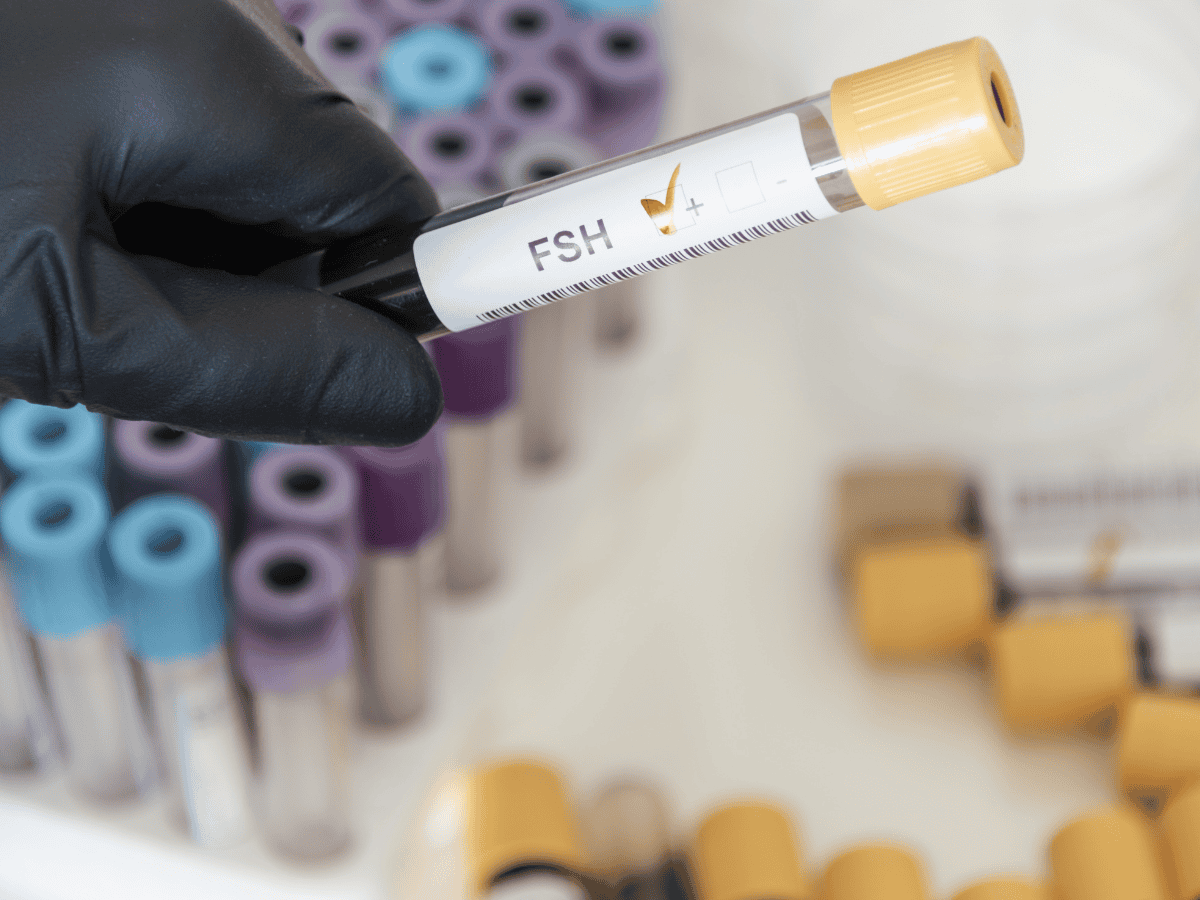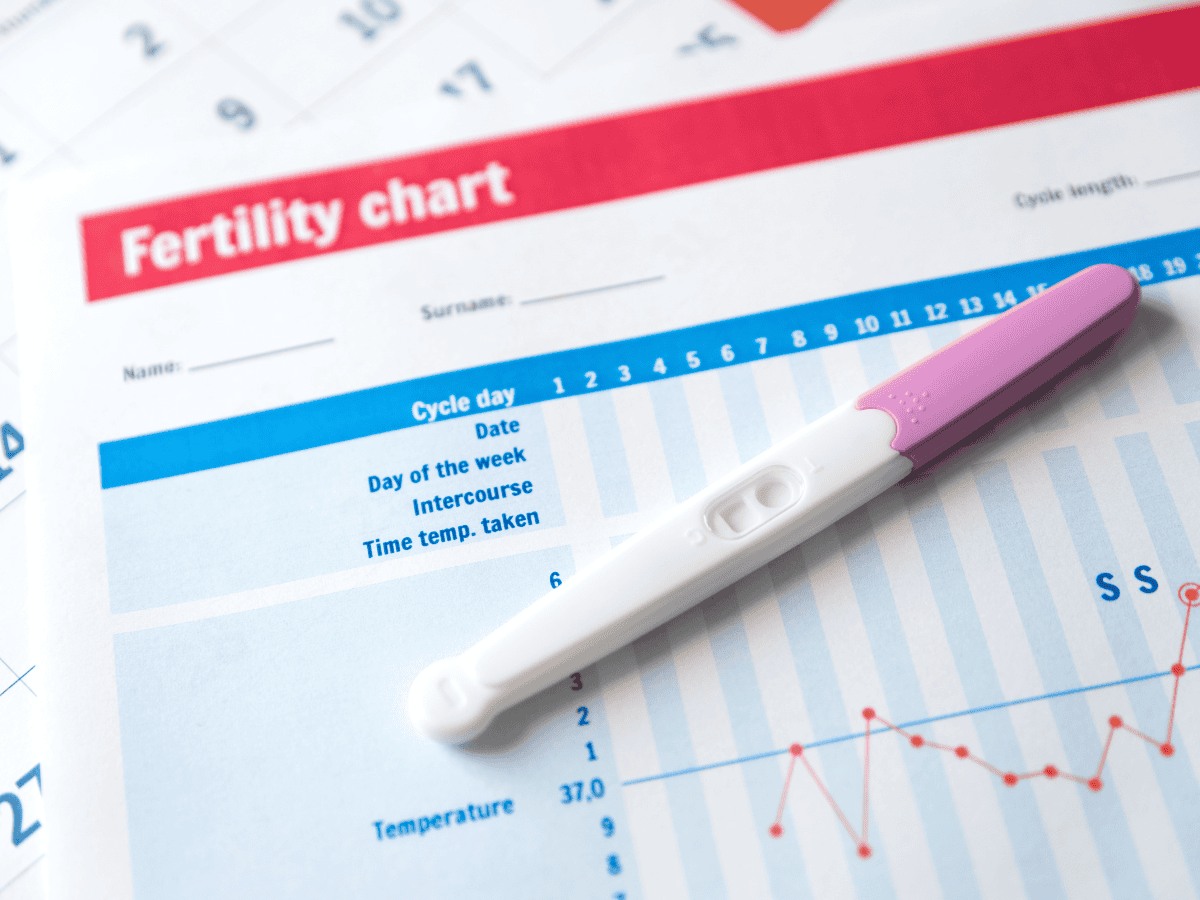Understanding female fertility is vital for anyone considering pregnancy or experiencing difficulty conceiving. Whether you’re actively trying to conceive, concerned about fertility due to age, or have irregular periods, knowing about fertility tests can help you make informed decisions.
When Should You Consider a Female Fertility Test?

While you can try an at-home fertility test, you might want to think about professional fertility testing if:
- You’ve been trying to get pregnant for over a year (or 6 months if you’re over 35).
- Your periods are irregular or have stopped.
- You have a history of reproductive issues like PCOS, endometriosis, or fibroids.
- A healthcare provider recommends testing based on your health or symptoms.
It’s important not to delay fertility testing if you suspect any issues, as timely diagnosis and treatment can greatly improve your chances of conception.
Types of Female Fertility Tests
Like male fertility tests, understanding the types of fertility tests available can help you navigate your fertility journey effectively.
Ovulation Testing
Ovulation predictor kits are convenient home tests that detect hormonal surges signaling ovulation. These kits help you determine the optimal time to conceive. Additionally, blood tests can measure hormone levels like progesterone to confirm if ovulation is occurring regularly. Monitoring ovulation closely is one of the simplest ways to enhance your chances of pregnancy.
Hormone Level Testing
Hormone tests measure essential fertility hormones, including:
FSH (Follicle Stimulating Hormone): Helps control the menstrual cycle and stimulates the growth of eggs in the ovaries.
LH (Luteinizing Hormone): Triggers ovulation by causing the mature egg to be released from the ovary.
Estrogen: Important for regulating your reproductive cycle and preparing the lining of the uterus for pregnancy.
Prolactin: Primarily involved in breast milk production, high levels can interfere with ovulation and menstrual cycles.
AMH (Anti-Müllerian Hormone): Indicates ovarian reserve or the number of eggs remaining, helping assess reproductive lifespan.
Hormonal imbalances can signal potential fertility challenges and help guide appropriate treatments.
Ultrasound Examinations
Ultrasounds provide detailed images of your reproductive organs. Common ultrasound types include:
- Transvaginal ultrasound: Provides close-up views of the ovaries and uterus to check for abnormalities.
- Follicle tracking: Monitors egg growth during your cycle to determine if and when you’re ovulating.
Ultrasounds can detect issues such as ovarian cysts, fibroids, or abnormalities in uterine shape, all of which can affect fertility.
Hysterosalpingogram (HSG)
An HSG test checks if your fallopian tubes are open and healthy. Dye is gently injected into your uterus, and an X-ray is taken to track the dye’s movement. This test can cause mild discomfort, similar to menstrual cramps, but provides valuable insights into your fertility health by identifying blockages or abnormalities.
Laparoscopy
Laparoscopy is a minimally invasive surgery that lets doctors examine your reproductive organs closely through a tiny incision. It can identify issues like endometriosis, ovarian cysts, adhesions, or blockages and is usually recommended if other tests indicate potential issues. While slightly more invasive, it provides comprehensive insights and the option for immediate treatment.
Genetic Testing
Genetic tests can reveal hereditary factors affecting fertility, especially if there’s a family history of fertility issues. This testing can help identify genetic risks, hereditary disorders, and guide personalized fertility treatments. Genetic counseling often accompanies these tests to ensure you fully understand your results and options.
How to Prepare for Female Fertility Tests
Proper preparation can make your fertility testing smoother and less stressful:
- Timing with your cycle: Certain tests must align with specific times in your menstrual cycle to provide accurate results.
- Medications: Inform your doctor about medications or supplements you’re taking, as some might affect test results.
- Emotional readiness: Fertility testing can feel emotionally challenging. Seek support from friends, family, or professionals and consider discussing any anxieties or concerns with your healthcare provider.
Interpreting Test Results

Understanding your results helps you make informed choices:
- Normal ranges: Your doctor will explain what typical results look like and how yours compare.
- Potential issues: Results indicating problems such as hormonal imbalances or blocked fallopian tubes will require further discussions about treatment options.
Clear communication with your healthcare provider is key to managing your fertility journey effectively.
Fertility Treatment Options Based on Test Results

Depending on your test outcomes, there are multiple ways to enhance fertility:
- Lifestyle changes: A balanced diet, regular exercise, stress management, and avoiding substances like alcohol and tobacco can significantly boost fertility.
- Medical interventions: Hormone therapies, minor surgeries to correct physical abnormalities, or medication can effectively address fertility issues.
- Assisted reproductive technologies (ART): Techniques like IVF (In Vitro Fertilization) or IUI (Intrauterine Insemination) assist in achieving pregnancy when natural conception proves difficult.
Discuss these options with your healthcare provider to determine the most suitable path for your situation.
About Air Doctor
With the Air Doctor app in your pocket, you can access medical care and receive expert medical guidance anywhere you travel.
Air Doctor offers a wide range of benefits, including:
- A global network of over 20,000 multi-lingual doctors and specialists
- Choice of clinic, at-home (hotel), and video consultations
- Healthcare access in 90 countries
- 24/7 multi-lingual support
- Transparent pricing and reviews
- Most common medical specialties, including gynecologists
FAQs
Costs vary but typically range from $100 to $1,000 depending on tests required and location.
Coverage depends on your insurance plan and location, so it’s best to check directly with your insurance provider.
Most fertility tests are minimally uncomfortable, with procedures like HSG causing mild discomfort similar to menstrual cramps. Doctors typically provide pain relief options if needed.












